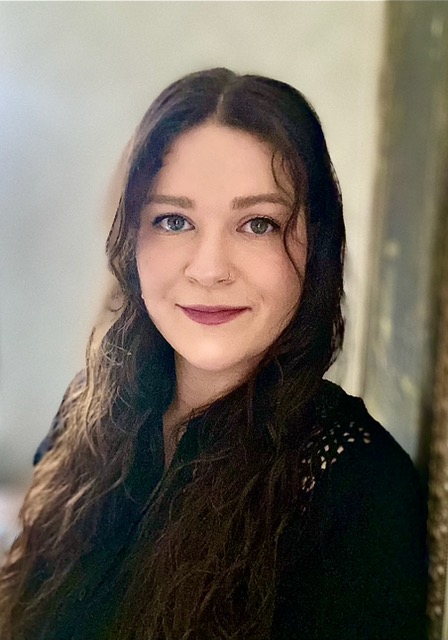Martin Mayman Award
The Martin Mayman Award is bestowed annually by the Society for Personality Assessment for a distinguished contribution to the literature in personality assessment. Eligible contributions may consist of an outstanding case study, qualitative research project, or theoretical development. The JPA Editor asks all Consulting Editors to nominate outstanding articles from the previous year, each of which is then rated by the Editor and Associate Editors.
Meet the Martin Mayman Award Winners for paper, Showing True Colours: EMA Case Descriptions of Narcissistic States
 Dr. Vanessa Freund
Dr. Vanessa Freund
Vanessa Freund received her Ph.D. in Psychology from Maastricht University, the Netherlands, in 2024. Her research focuses on grandiose and vulnerable narcissistic traits and states in daily life, primarily through the use of ecological momentary assessment methods. Currently, she works as a clinical psychologist at the Ostebogen Clinic for Social Psychiatry and Neurology in northern Germany, where she is involved in the treatment of a wide range of disorders, from personality and internalising disorders to ADHD. Simultaneously, she is completing further clinical training at the Köln-Bonner Academy for Psychotherapy in Bonn, Germany.
 Dr.Frenk Peeters
Dr.Frenk Peeters
Frenk Peeters (M.D., Ph.D.) is a psychiatrist, psychotherapist and currently Emeritus Professor of Clinical Psychology at Maastricht University, Maastricht, the Netherlands. His research interest was mainly aimed at the study of treatments for major depression and daily life studies in different, mostly clinical, populations with the use of ecological momentary assessment.
 Dr. Jill Lobbestael
Dr. Jill Lobbestael
Jill Lobbestael received her Ph.D. in Psychology from Maastricht University in 2008 on cognitive beliefs and childhood trauma in borderline and antisocial personality disorders. After positions as Visiting Research Fellow (Harvard University, 2010) and Postdoc (Florida State University, 2011), she was appointed Assistant Professor in Clinical Psychology at the Department of Clinical Psychological Science, Maastricht University. Lobbestael's research focuses on the darker sides of personality, with a particular interest in assessing, predicting and therapeutically lowering aggression. She headed the scientific track of the post-doctoral Clinical Psychology track at Rino Zuid, worked as a clinical therapist for patients with PTSD and personality disorders, and served as department head and director of the graduate school. Currently, she is Associate Professor and Vice Dean of Research of the Faculty of Psychology and Neuroscience. Her research was funded by e.g. NWO (Veni, Brain&Cognition, Aspacia) and the ZonMw open competition.
View All Previous Award Winners Below.
The MARTIN MAYMAN AWARD is bestowed annually for a distinguished contribution to the literature in personality assessment. Eligible contributions may consist of an outstanding case study, qualitative research project, or theoretical development. The Journal of Personality Assessment Editor asks all Consulting Editors to nominate outstanding articles from the previous year, each of which are then rated by the Editor and Associate Editors.
| Year | Recipient(s) | Outstanding Case Study, Qualitative Research Project, or Theoretical Development |
| 2022 | Radhika Krishnamurthy, Giselle Hass, Adam Natoli, Paul Arbisi, Bruce L. Smith, and Emily Gottfried | Professional Practice Guidelines for Personality Assessment |
| 2021 | Katie C. Lewis, Jeremy M. Ridenour, Seth Pitman, Michael Roche | Evaluating Stable and Situational Expressions of Passive-Aggressive Personality Disorder: A Multimethod Experience Sampling Case Study |
| 2020 | John D. Mayer | An Integrated Approach to Personality Assessment Based on the Personality Systems Framework |
| 2019 | Thomas Widiger | Criterion A of the AMPD in HiTOP |
| 2018 | Robert Archer | Limitations in the Prediction of Mass Violence: Cautionary Tales |
| 2017 | Robert F. Bornstein | Evidence-Based Psychological Assessment |
| 2016 | Pierro Porcelli, James Kleiger | The "Feeling of Movement":Notes on the Rorschach Human Movement Response |
| 2015 | Craig Rodgireuz-Sejas, Nicholas Eaton, Robert Krueger | How Transdiagnostic Factors of Personality and Psychopathology Can Inform Clinical Assessment and Intervention |
| 2014 | Allan R. Harkness, Shannon Reynolds, Scott O. Lilienfeld | A Review of Systems for Psychology and Psychiatry: Adaptive Systems, Personality Psychopathology Five (PSY-5), and the DSM-5 |
| 2013 | Anthony D. Bram | Psychological Testing and Treatment Implications: We Can Say More |
| 2012 | Robert F. Bornstein | Rorschach Score Validation as a Model for 21st-Century Personality Assessment |
| 2012 | Justin D. Smith, Filippo Aschieri | The Effectiveness of Therapeutic Assessment with an Adult Client: A Single-Case Study Using a Time-Series Design |
| 2011 | Stephen E. Finn | Journeys through the Valley of Death: Multimethod Psychological Assessment and Personality Transformation in Long-Term Psychotherapy |
| 2010 | Bridget A. Rivera, Donald J. Viglione | Conceptualization of Children’s Interpersonal Relatedness with the Rorschach: A Qualitative Multiple Case Study |
| 2010 | Anthony D. Bram | The Relevance of the Rorschach and Patient-Examiner Relationship in Treatment Planning and Outcome Assessment |
| 2009 | Justin D. Smith, Nicole Wolf, Leonard Handler, Michael Nash | Testing the Effectiveness of Family Therapeutic Assessment: A Case Study Using a Time Series Design |
| 2008 | Robert E. McGrath | The Rorschach in the context of performance-based personality assessment. JP, 90 |
| 2007 | Steven K. Huprich, Robert F. Bornstein | An overview of issues related to the categorical and dimensional models of personality disorder assessment. JPA, 89 |
| 2006 | David S. Nichols | Tell me a story: MMPI responses and personal biography in the case of a serial killer. JPA, 86 |
| 2005 | Robert E. McGrath | Conceptual complexity and construct validity. JPA, 85 |
| 2004 | James R. Allen, Richard H. Dana | Methodological issues in cross-cultural and multicultural Rorschach research. JPA, 82 |
| 2003 | Stephen E. Finn | Therapeutic assessment of a man with "ADD". JPA, 80 |
| 2002 | Mary Jo Peebles-Kleiger | Elaboration of some sequence analysis strategies: Examples and guidelines for level of confidence. JPA, 79 |
| 2002 | Robert F. Bornstein | A process dissociation approach to objective-projective test score interrelationships. JPA, 78 |
| 2001 | Robert E. McGrath | Toward more clinically relevant assessment research. JPA, 77 |
| 2000 | Carol Groves Overton | A relational interpretation of the Rorschach color determinants. JPA, 75 |
| 2000 | Constance T. Fischer | Collaborative, individualized assessment. JPA, 74 |
| 2000 | Irving B. Weiner | Making Rorschach interpretation as good as it can be. JPA, 74 |
| 1999 | Robert Craig | Testimony based on the Millon Clinical Multiaxial Inventory: Review, commentary, and guidelines. JPA, 73 |
